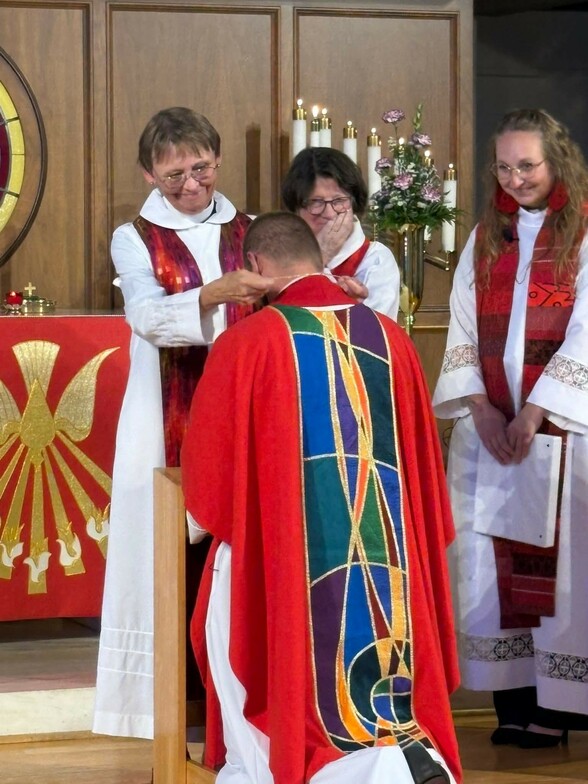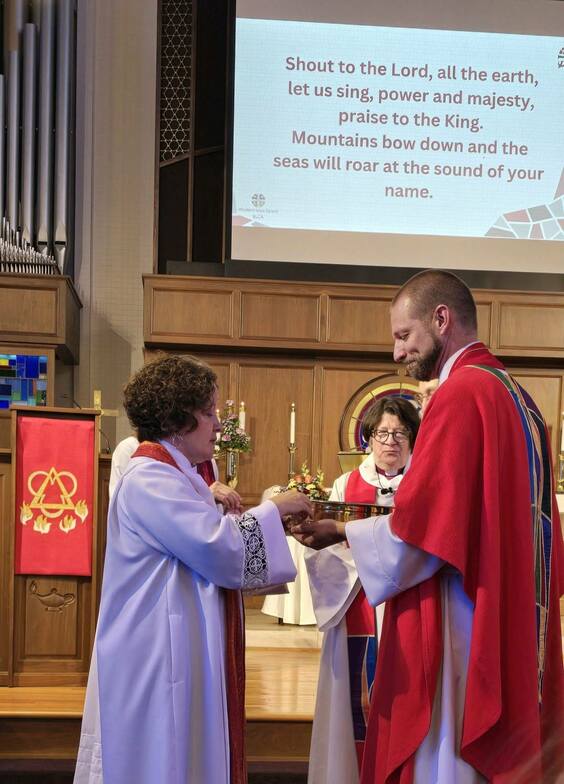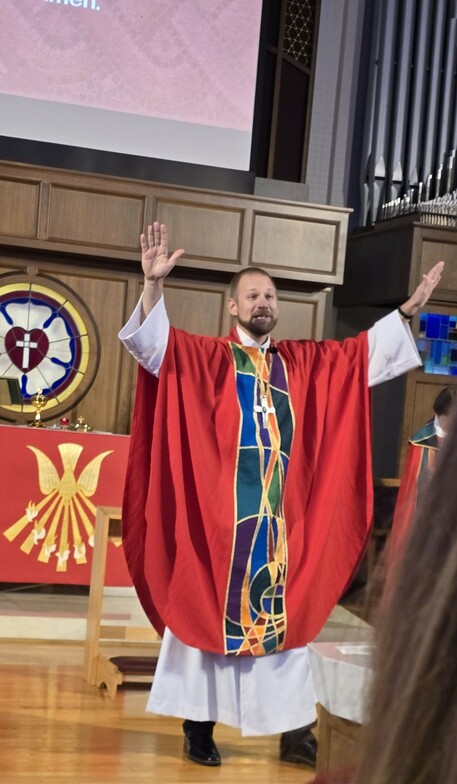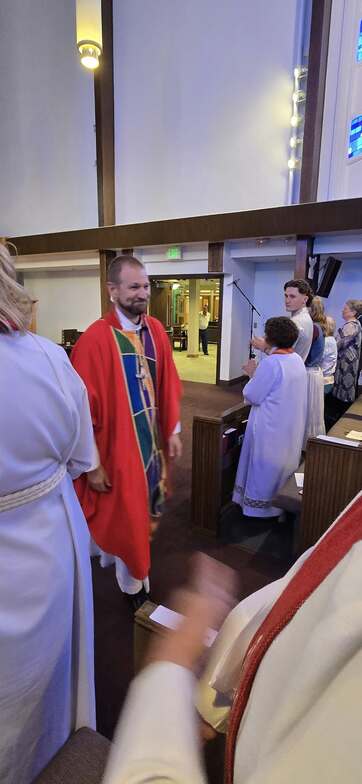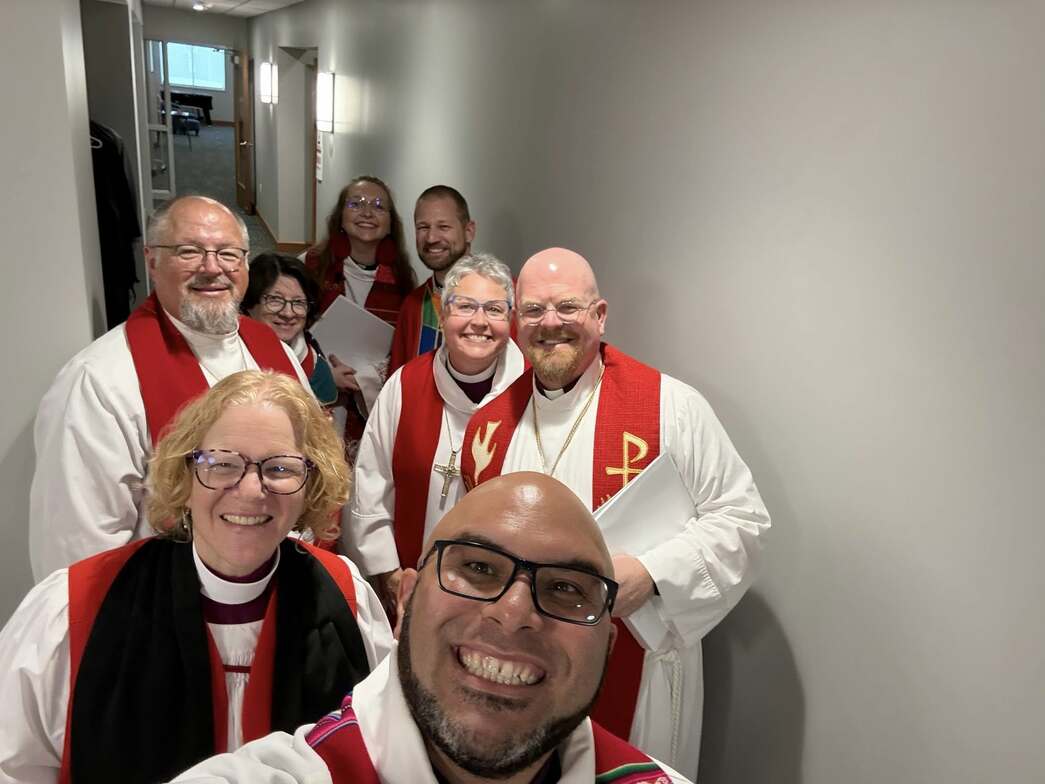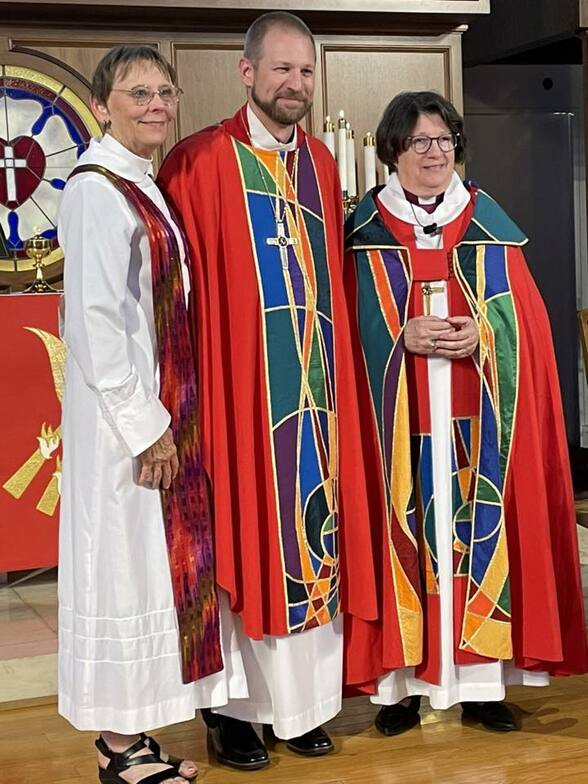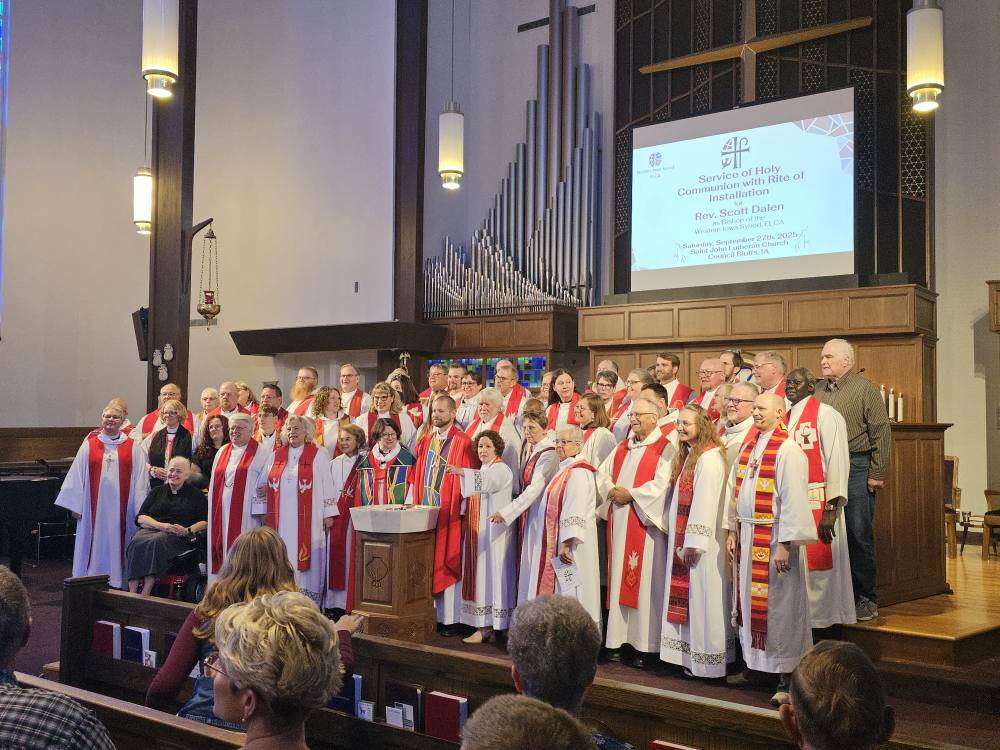Rev. Scott Dalen has been installed as Bishop of the Western Iowa Synod, ELCA.

The Western Iowa Synod is excited to announce our new Director for Evangelical Mission (DEM), Pastor Melissa Pickering. Pastor Melissa will begin her work in the DEM role on Monday, March 16.
Pastor Melissa has most recently served as the called Pastor to First Lutheran in downtown Audubon, MN. She also served as the Rural Ministry Mission Developer for the Northwest Minnesota Synod of the ELCA. In this role, Pastor Melissa works with rural and small-town congregations that are experiencing a strain on resources and members. She helps them discover new ways to be church in their community and different ways to live out their mission.
Pastor Melissa is a 1998 Augustana graduate and a 2022 graduate of Luther Seminary’s M.DivX program. Before going to seminary, Pastor Melissa was a Children and Youth Minister in Moorhead, MN. She and her husband Brian have adult daughters—Katherine, Audrey, and Elizabeth—and a middle-school-aged son, Erickson.
She has been involved in campus ministry at MSUM, The Jordan Project, and the Women’s Resiliency Team for the Northwest Minnesota Synod. She enjoys walking, running, and conversations about worship and ministry. She loves music, being with family and friends, and watching rom-coms.
Join us in welcoming Pastor Melissa Pickering, the new Director for Evangelical Mission for the Western Iowa Synod.

Did you know that Easter is easily the highest attended worship of the year – way higher than Christmas? And did you know that it is also easily the easiest day to invite someone to attend worship with you? And did you know that most congregations don’t utilize this information very well – we just hope new people will show up!
This online workshop will include a treasure trove of ideas to help lay people talk about Easter and invite others into Easter, help the preacher preach at Easter, and help your congregation use the last few weeks of Lent as a chance to renew the faith of members and also share their faith with others.
Led by Pastor Dave Daubert, who has as Doctor of Ministry in Preaching and a PhD in Theology, we’ll look at several simple ways congregational leaders and pastors can use Easter to change the narrative around your congregation, deepen everyone’s understanding of the cross and resurrection, and find simple and useful talking points to better understand and share faith.
Participants will also receive a template for creating a simple, editable printed invitation template that you can produce using your ink jet/laser printer in the office and give to every member to use to invite others!
Registration is limited to 100 people.
PARTICIPANTS WILL RECEIVE THE ZOOM LINK VIA EMAIL SHORTLY BEFORE THE ZOOM STARTS
2025 Assembly Highlights
See highlights on the Assembly 2025 page.
Bishop Curry and Minnesota synod bishops
News
No news found.
